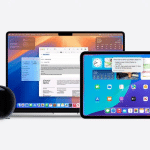For years, the default path for startups was clear: build a minimum viable product (MVP) in the form of a stripped-down web or mobile app.
Ship it, test it, and iterate. But something has shifted.

More early-stage founders today are skipping traditional apps and launching lightweight AI agents—chatbots, GPT-powered copilots, and voice-first tools—as their first product. This shift is a reflection of how AI is changing the cost, speed, and playbook of product development.
The Old MVP Playbook (and Its Limits)
The classic MVP approach involved wireframes, clickable prototypes, a basic app build, and a long march toward the App Store. Even a so-called “lean” MVP often stretched into months of engineering and carried a price tag in the tens or even hundreds of thousands of dollars.
Beyond raw cost, there were countless friction points: design handoffs, backend integrations, app store approvals, and updates slowed by resubmission cycles.
For solo founders or small teams, these hurdles could kill momentum before an idea ever reached its first cohort of users. Stories abound of startups burning through early funding just to get a rudimentary app live—only to discover the core idea needed major pivots.
The traditional model gave founders something tangible, but it often delayed the most important step: learning from real users as early as possible.
Why AI Agents Are the New MVP
AI agents have become the faster, leaner way to test ideas.
A GPT-powered chatbot or a simple AI copilot can often be built in days instead of months. Instead of waiting for app reviews, founders can drop a link and get users testing right away. And unlike static MVPs, AI agents can learn and evolve with every conversation, making them dynamic feedback engines.
We’re already seeing this play out: startups like Character.AI gained millions of users by offering AI chat companions without building a full app ecosystem at launch. Productivity tools such as Jasper and Copy.ai tested their markets with lightweight GPT-powered assistants before expanding into full platforms. Even niche education apps are launching voice-first tutors to validate demand before investing in complex builds.
The appeal is obvious: less upfront capital, faster feedback, proven traction, and more room for experimentation before committing to heavy engineering cycles.
Comparing Approaches
To put this shift in perspective, it helps to line up the old way of doing things with the new. After exploring why AI agents are gaining traction, the next step is to compare them directly with traditional MVPs.
Here’s how the traditional MVP model stacks up against launching with AI agents:
| Factor | Traditional MVP | AI Agent MVP |
|---|---|---|
| Time to Launch | Weeks to months | Days to weeks |
| Cost | $50k–$150k+ for a functional app | Often <$10k for a working prototype |
| User Testing | Limited until launch | Immediate, through chat/voice interactions |
| Iteration Speed | Slow (engineering cycles, app resubmits) | Fast (adjust prompts, retrain models) |
Real-World Examples
- Solo founders are validating startup ideas with GPT-powered chatbots—similar to how indie makers launched tools like DoNotPay’s early legal chat assistant—collecting user feedback before committing to a full build.
- Early SaaS teams are embedding AI copilots into their workflows, much like Notion tested its AI writing assistant before releasing it broadly across the platform, letting them see which features matter most to users.
- Education and productivity startups are using voice-first MVPs, echoing approaches by companies like Ewa (an AI English tutor) that started with voice-driven lessons before scaling into more polished apps.
Each of these paths demonstrates the same lesson: speed matters, and AI lowers the barrier to finding out whether an idea has legs.
Risks and Limitations
Of course, AI-first MVPs aren’t a silver bullet.
They often lack the polish and trust signals that come with a well-designed app, and that can turn off early adopters who expect a seamless experience. Data privacy and security are major concerns as well, especially in regulated industries like healthcare or finance where compliance is non-negotiable.
Even Character.AI, with its rapid growth, has faced scrutiny over content moderation and data handling. Productivity startups like Jasper have had to address enterprise security requests before scaling into corporate clients.
And there’s the inevitable transition challenge: once a concept works, how do you move from an AI agent MVP to a full-fledged, scalable product that can handle thousands of users, pass audits, and integrate with existing systems?
This handoff from lightweight agent to robust application remains one of the toughest parts of the journey.
Where Full Apps Still Win
There are still categories where full apps remain essential, and real-world examples underline why:
- Fintech and healthcare, where compliance and security can’t be compromised. Companies like Robinhood and Teladoc rely on full apps to meet strict regulations and deliver trust at scale.
- Offline-first products, where users can’t rely on constant connectivity. Apps like Spotify or Evernote provide offline modes that AI-first MVPs simply can’t match.
- Scaling to thousands of users, where app frameworks still outperform early AI prototypes. Social platforms such as Instagram or Slack show how native app infrastructure supports massive concurrent usage reliably.
In these cases, AI agents may play a role in early testing, but full apps remain the foundation for long-term success.
Final Takeaways for Startup Founders
AI agents are reshaping how startups think about MVPs.
They aren’t a replacement for full apps, but they’ve opened a faster, more accessible on-ramp for founders to test ideas and learn what sticks. For today’s lean teams and solo entrepreneurs, the question isn’t whether to use AI agents—it’s how far you can take them before it’s time to graduate into a full app.
The smartest founders are using both: AI for speed and validation, apps for scale and staying power.












